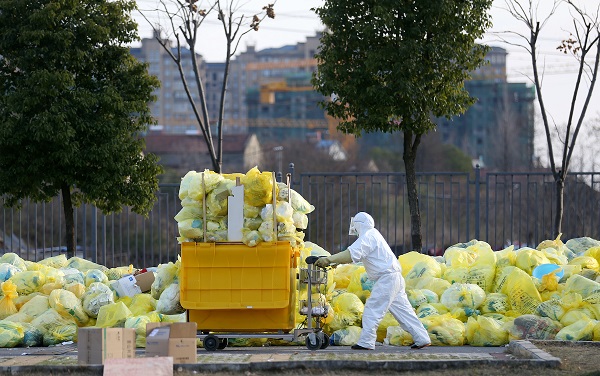
The Coalition for Epidemic Preparedness Innovations (CEPI) said it has kick-staryed its 100-day mission advocating for a critical initiative to protect Africa from the increasing risk of epidemics fueled by climate change.
Head of Lassa fever engagement, CEPI,Ms Oyeronke Oyebanji told Science Nigeria on Friday in Abuja that the “100 Days Mission,” CEPI’s ambitious target aimed to develop vaccines within 100 days of an outbreak, helping to contain diseases before they spread widely.
Oyebanji said that the initiative could be transformative for countries like Nigeria, where diseases such as Lassa fever and Mpox threaten public health and economic stability.
“With the growing impact of climate change, diseases like Lassa fever and Mpox may spread more unpredictably.
“Our ‘100 Days Mission’ is more critical than ever, focusing on rapid vaccine development to develop vaccines that can save lives and limit transmission, and build capacity to do this rapidly” she said.
She warned that rising temperatures and extreme weather events were contributing to the spread of infectious diseases, many of which were already prevalent in Africa.
She said that warmer temperatures and unpredictable rain patterns can increase the habitats for disease vectors like rodents and insects, raising the likelihood of outbreaks.
She added that, as diseases such as Mpox and Lassa fever continue to emerge, public health systems across Africa must prepare for the possibility of rapid transmission.
She said that achieving the 100 Days mission would require an unprecedented level of coordination among governments, researchers, the private sector and civil society.
She said that African governments were being called upon to strengthen investments in measures to prevent, prepare, detect and respond to infectious disease outbreaks.
She said that CEPI’s mission underlines that this is a collective effort, urging that “accelerated vaccine development and well-coordinated preparedness measures are essential for a resilient Africa.”
She said that the initiative also highlighted the need for local vaccine manufacturing and robust healthcare infrastructure in Africa.
“With support from international organizations and local stakeholders, Nigeria and other African nations are working to build health resilience against both familiar and emerging threats.
“This capacity-building is key to ensuring that African countries can respond effectively to future health crises,” she said.
However, she said that realising this vision requires sustainable funding.
“CEPI has called for greater investment in vaccine research and development to secure the resources necessary for its mission,” she said.
She stressed that funding must go beyond emergency response, focusing on long-term preparedness and building healthcare systems capable of tackling climate-driven epidemics.
“CEPI is investing in the development of a Lassa vaccine, working with African countries to accelerate this mission and build the tools for this climate-sensitive pathogen,” she explained.
She stated that by prioritising rapid vaccine development and enhanced surveillance, Nigeria and its neighbours were positioning themselves to protect communities from the growing threat of climate-driven diseases.
Meanwhile, she disclosed that one of CEPI’s partners, IAVI, launched the first-ever Phase II clinical trial of a Lassa fever vaccine in Nigeria in April 2024.
“Participants at HJF Medical Research International in Abuja, Nigeria, have been vaccinated in this landmark Phase II clinical trial of a Lassa fever virus (LASV) vaccine candidate, according to IAVI, the non-profit scientific research organisation sponsoring the trial.
“The study, named ‘IAVI C105/PREVAIL15,’ is funded by CEPI,” she said.
She explained that Lassa fever is a deadly hemorrhagic fever common in West Africa and emphasised, “No approved vaccine currently exists.”
She further disclosed that over 600 participants in Ghana, Liberia and Nigeria are expected to enrol in the IAVI-sponsored trial, funded by CEPI.
Additionally, she said that the largest-ever Lassa fever epidemiological study funded by CEPI was a collaboration with governments that aims to provide an in-depth look at the disease’s symptoms.
“On October 2, 2024, scientists in Nigeria began pioneering research aimed at understanding the variation in Lassa fever symptoms and comparing them to those of malaria and other significant infections prevalent in the region.
“The new research, led by the Nigeria Centre for Disease Control and local study sites, is part of ‘Enable,’ the world’s largest Lassa fever study,” she explained.
She said that ‘Enable’ was established by CEPI and partners to provide a more accurate picture of Lassa fever’s disease burden in West Africa and support outbreak preparedness efforts, including the development of a Lassa vaccine.

